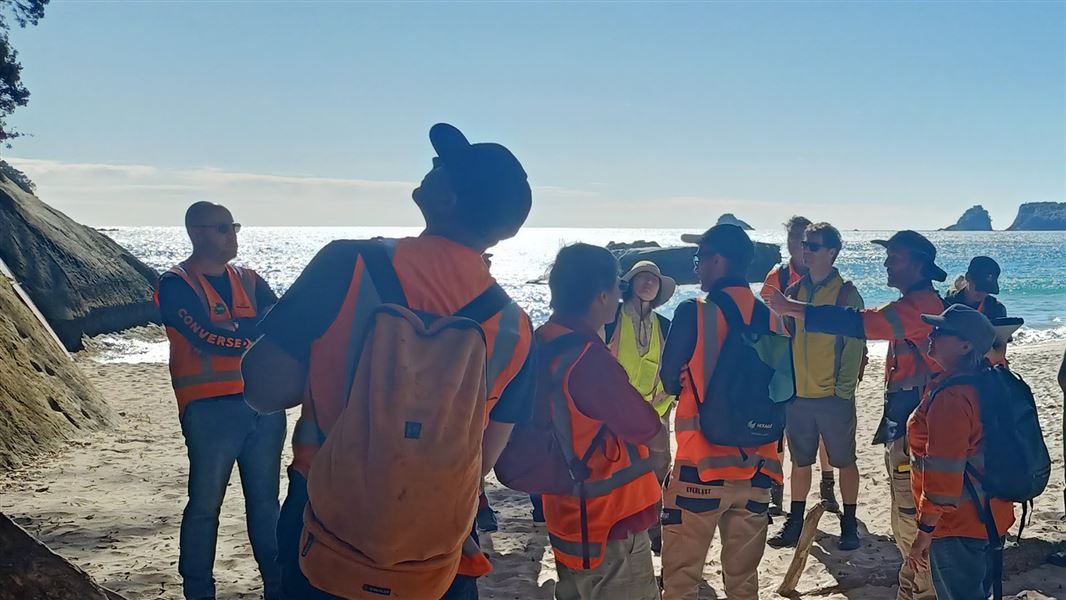Through decades of global discussion about climate change and responses to it, the year 2050 has been posted as a deadline for implementing strategies.
Suddenly, 2050 is only 26 years away.
“If you’re a cattle breeder, that gives you only about 2.5 generations in which to make the adaptations you need to make to address climate change and policy change,” says meat scientist Dr Alex Ball.
“For sheep breeders, it’s about 5-6 generations.”
Dr Ball is part of an upcoming forum, hosted by UNE’s SMART Region Incubator, that explores how the livestock industries transition from decades of climate change talk into tangible action.
To be held at the University of New England (UNE) on 17 November, the Future of Sustainable Livestock Protein forum will encourage livestock producers and other parts of the industry “not to look 30 days ahead, but 30 years,” Dr Ball says.
The forum’s four speakers will address the challenge from the perspective of producers, supply chains, markets and agtech investments.
Paul West, chef and author, on consumer expectations around sustainable protein (Mr West is also cooking dinner);
John Harvey, Executive Director and Managing Director of AgriFutures Australia, on how agriculture changes to accomodate changing consumer preferences;
Josie Angus, who with husband Blair has built an operation exporting to more than 30 countries from a 40,000-head herd of EU-accredited composite cattle, on supply chain shifts and responses;
Johnny Kahlbetzer, CEO of the Twynam Group, on the scope for agtech investments in agriculture.
Each speaker will give a presentation, followed by a panel session moderated by Dr Ball. Dr Ball has an extensive research resume in the fields of meat science and livestock genetics, and is a livestock producer himself. UNE’s Professor Lewis Kahn, an expert in sustainable livestock agriculture, will summarise the discussion.
The event will then move to dinner, where Paul West and UNE meat scientist Associate Professor Pete McGilchrist will host a barbecue around the theme of ‘eating the whole animal’. The menu includes secondary beef cuts slow-cooked by Mr West.
Mr West believes that sustainable consumption of meat partly rests on dethroning the primary cut. He is encouraging consumers to explore the delights of eating secondary cuts and offal.
“Just a tiny bit of education to consumers can really unlock a whole new range of cuts from the butcher shop,” he says.
Professor Kahn observes that years of talk and strategy development around climate change, without an associated economic imperative for action, has made many in the livestock industries unresponsive to expectations of change.
Those economic levers for change are now being put into place, he says, among them the European Union’s carbon border tax, to be introduced in 2026.
Meanwhile, climate change is slashing agricultural productivity across the world, and respondents to the annual World Economic Forum’s latest Global Risks report rate “climate action failure” as the biggest global risk over the next decade.
“This event is about encouraging participants to switch on and pay attention to the urgency of these issues and the societal expectations around them,” Prof. Kahn says.
“We want people to leave with a mindset, and even a plan, of how they are going to respond to these issues, and secure the opportunities that exist now and into the future.”
The Future of Sustainable Livestock Protein, part of the SRI’s AgriTech Futures Series, will be held at UNE’s Wright Lecture Theatre followed by dinner at the university’s Potting Shed.
The event is proudly funded by the NSW Government through the Accelerating Regional Innovation Fund, and delivered with support from Armidale Regional Council.
Date & time: Friday, 17 November 2023: 2:00 pm to 8:00 pm.
Tickets: (forum & meal) – $60. Book here
More: UNE SRI website – https://www.unesri.com.au/event-listings/sustainable-ruminant-protein-future-series








